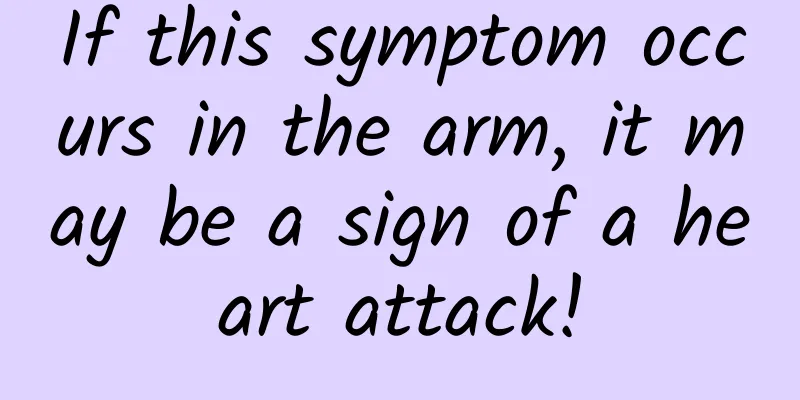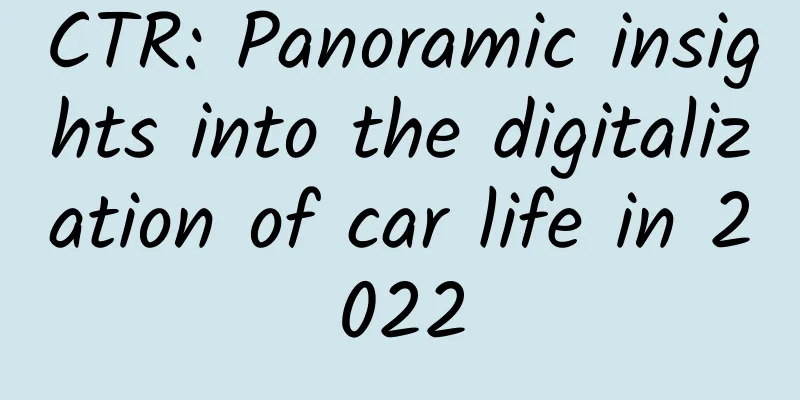WeChat’s “Tap, Tap” function can now be withdrawn. Can we finally say goodbye to “social death”?

|
Tap may be the simplest yet most controversial feature in WeChat’s history. How simple is it? Zhang Xiaolong said it only took one line of code.
How controversial is it? Under every Weibo post involving the topic #clap#, you can see angry comments demanding the cancellation of this feature; but on the other hand, "What good clap tails are recommended?" is a popular question on Zhihu with nearly 5 million views. Some people hate it, while others enjoy it. It can be said that clap proves that "human joys and sorrows are not the same." Since its launch on June 17, many people have predicted that “Tap” will be offline at the speed of light, just like “emojis in Moments”, and will be quickly forgotten in the internet memory that is updated every three days. But two months later, “Tap” has survived tenaciously. After the novelty faded, people gradually accepted this feature and learned how to “appropriately” pat their friends. During this period, the WeChat team also optimized the "Tap" function. This includes supporting custom suffixes, pop-up bubble reminders after tapping, and the "Tap withdrawal within 2 minutes" function that was just launched today. But this does not seem to be enough to quell people's dissatisfaction. Under iFanr's Weibo, the hot comments are still "Can this function be deleted?" This polarized situation makes people wonder: Is "pat-pat" a brilliant social idea or a failed and unnecessary move? Subtle social space Personally, I think “Tap” is a great feature - it expands the possibilities of social interaction. According to Zhang Xiaolong, it allows friends on WeChat to "greet each other like ants." In other words, it provides a "tactile" alternative in the digital space. Before the birth of "Tap", if you wanted to designate a friend to discuss a specific topic, you could either call him/her by name or use the "@someone" function, but both of these seemed too formal and implied an attitude of "I want to talk to you seriously about this", so "@someone" was actually more suitable for use in work settings. By simulating the sense of touch, “pat” creates a more informal, intimate and playful way of greeting. The subtlety of this can be seen from the English translation of “pat”: in the initial version, users whose WeChat language is English will see that “pat” is translated into “nudge”, which means “gently touch with the elbow”; but after updating to the new version, you will find that the WeChat team has changed the translation to “tickle”, which means “tickling to make the other person laugh”. It seems that WeChat wants us to use the “pat” function in a more intimate manner. Another example of the informality of "pat" is that in a group chat with friends who get along well, you can pat everyone for no reason, but others will not be confused by this - they will pat you back. There is no visible meaning, but the relationship between people is largely maintained by this "meaningless" touch. In the interaction of "pat", everyone can have fun and be silly together without pressure, and people can communicate in a more relaxed way. On the contrary, if you @ all the group members early in the morning, others may mistakenly think that you are planning to discuss the itinerary for the next activity, or ask everyone to remember to pay for the last meal. This is the difference between formal communication and informal communication. Informality also gives "pat pat" another potential - in fact, many people have already practiced it - that is, talking about the body and sex. Social and cultural norms make words related to the body slightly taboo, which makes these topics disappear in formal speech. However, "pat pat" just represents an "indecent" speech occasion, which gives many people the opportunity to put down their burdens and "drive" by modifying the suffix. Friends can casually "pat the butt", "pat 36D", "pat the head", precisely because "pat pat" itself means "I'm kidding, don't take it seriously." But I also realize that my love for "Tap" is based on some special conditions: I am mostly surrounded by people of the same age, I live in a relatively open and relaxed cultural environment, and the few elders on WeChat have not learned to "Tap" me. If these conditions are not met, "Tap" will bring troubles, which highlights the problem with the current version of "Tap". Wandering between different identities A basic principle that sociology tells us is that everyone has multiple identities. A person can be Chinese, someone's son, someone's husband, a laborer, an editor, etc. So, how should he play each role well? The simplest method is "impression management", that is, "speaking different words to different people". This may sound a bit abstract, but the specific form of impression management has long appeared on WeChat - that is, the grouping of friends. With the help of the grouping function, everyone has the right to show specific life fragments to specific people, thereby constructing their own image. In addition, the chat of each contact on WeChat constitutes an independent space. You don’t have to worry about what you say to A being heard by B, which is also a manifestation of impression management. On the contrary, if some messages that do not match your "personality" are sent to another person by mistake, it usually leads to embarrassment and embarrassment. Managing different identities on WeChat is a difficult art. The best way is to create a WeChat account for each of your identities. Many people set up "work WeChat" and "personal WeChat" for this reason. However, because WeChat restricts multiple accounts and switching accounts is quite troublesome, most people actually use only one WeChat account to handle all matters. At this time, balancing different social identities becomes a matter that needs to be handled carefully. Unfortunately, the current version of "Tap" is global. The "Tap" suffix you set applies to all friends, which breaks the "wet and dry separation" between different identities. If the images of different identities are relatively consistent, it is easy to deal with, but for those who have very different images between different identities, "Tap" will be a hassle. After all, no one wants the suffix they set for friends to play with to be accidentally photographed by a serious boss or elder. Related to this is the possibility of accidental tapping. It is simple to double-click the avatar to trigger the tap function, but it may also lead to accidental tapping, which makes us cautious when using WeChat. If you accidentally tap a WeChat friend you are not very familiar with when trying to view their Moments, or if you accidentally tap someone you didn’t intend to tap in a group chat, it will lead to a conflict with the original identity positioning, which will put us in an awkward situation. The destruction of the original identity management model is the root cause of most people’s dissatisfaction with "Tap". Of course, in order to make "Tap" more useful, WeChat has also made changes. Today, if you update WeChat to the latest version (Android version number 7.0.18, iOS version number 7.0.15), you can experience the "Tap to Withdraw" function. The new version of WeChat allows us to withdraw the "Tap to Withdraw" prompt within two minutes of sending it, and the withdrawal reminder will not be displayed to the other party. In other words, as long as the other party does not see you tap him/her within these two minutes (hopefully!), you can take the regret medicine and pretend that nothing happened, because the embarrassing situation caused by accidental touches can also be reduced. But “regret medicine” alone is not enough to eliminate the difficulties of identity management. If we really want to avoid all kinds of possible embarrassment, we still need more detailed identity management - that is, adding switches and group display suffix functions to “Tap Tap”. |
<<: Microsoft's immortal dream of mobile phones
>>: WeChat tap can be withdrawn Official effect demonstration: the dialog box does not leave a trace
Recommend
If you don't know these things during your physical examination, it's like doing nothing! Here's what people aged 20 to 50 should check!
Mr. Wang (pseudonym), who is in his 40s, had a bu...
Learn about the magic of ants! Ants not only herd livestock, but also grow mushrooms
Produced by: Science Popularization China Author:...
Radio signals in a storm: riding the wave or hanging by a thread?
With thunder and lightning, howling winds, and po...
Momo promotion: Momo product analysis report!
Momo is a pan-entertainment and pan-social platfo...
I never expected that aspirin and heroin came from the same person.
"If it weren't for Felix Hofmann, there ...
S Business School_14-day WeChat Moments copywriting training camp
S Business School 14-day WeChat Moments Copywriti...
How to plan a large-scale promotional event?
What are the big promotions? It generally refers ...
A guide for office workers to make money as a side job
A guide for office workers to make money as a sid...
OPPO information flow advertising introduction and delivery guidance
OPPO's marketing platform integrates the excl...
Huanwang joins hands with Sofres to transform the smart TV industry with data
With the rapid popularization of smart TV termina...
8 Tik Tok promotion skills to teach you how to play Tik Tok from scratch!
In the mobile era, traffic entrances were Weibo a...
78.8% of netizens would never accept it! Why is WeChat charging so annoying?
[[422664]] A few days ago, WeChat was revealed to...
Android M will reportedly improve notification bar and battery life
[[133752]] Google will release a new version of t...
Analysis of the Unicorn NetEase Cloud Music’s Competitive Products with Over 300 Million Users!
Before NetEase Cloud Music launched its first ver...



![[Case Study] A large number of e-commerce information flow advertising “magic picture” design skills are shared!](/upload/images/67cc368984635.webp)





